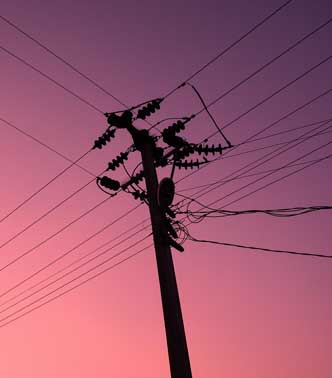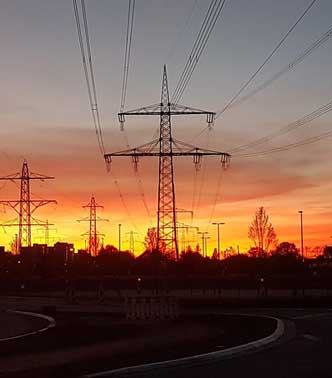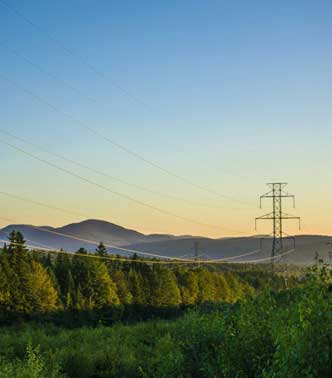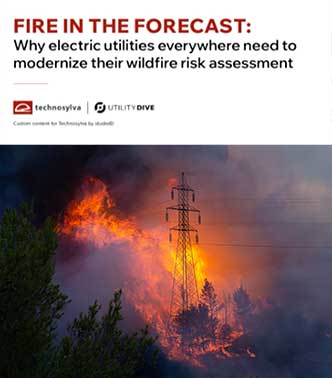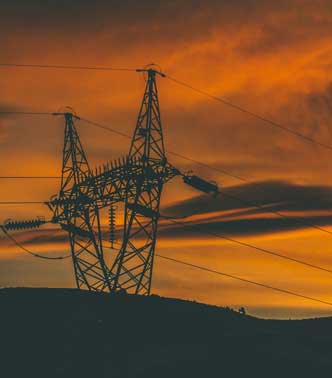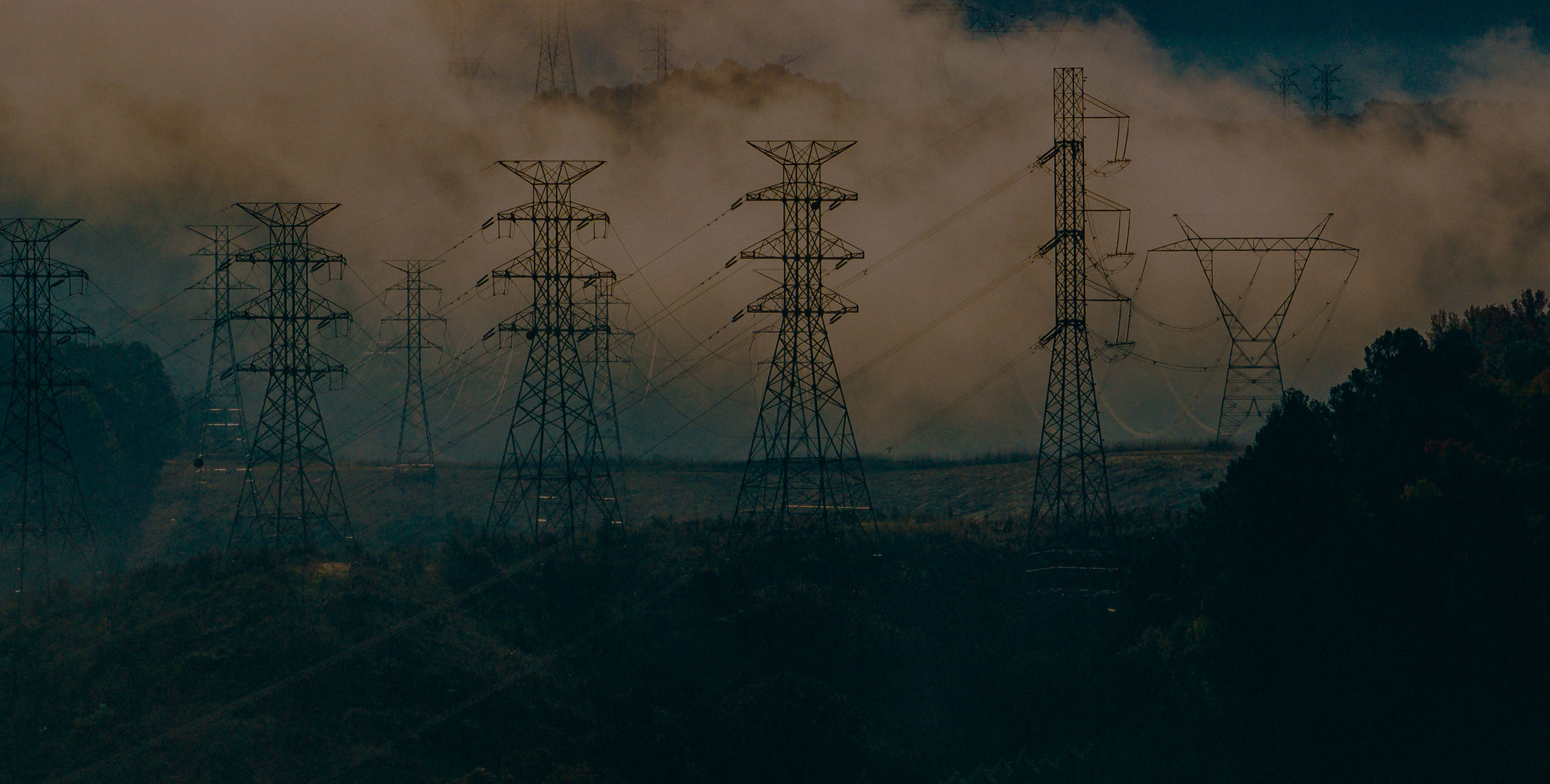
PSPS & EPSS
Surgical PSPS: Minimize impact, maximize safety.
Getting PSPS right is about precision. Making sure it’s done at only the right times, and directing it to only the highest risk circuits. We help you plan and deploy your PSPS strategies, not just for your utility, but transparently for your customers and regulators.
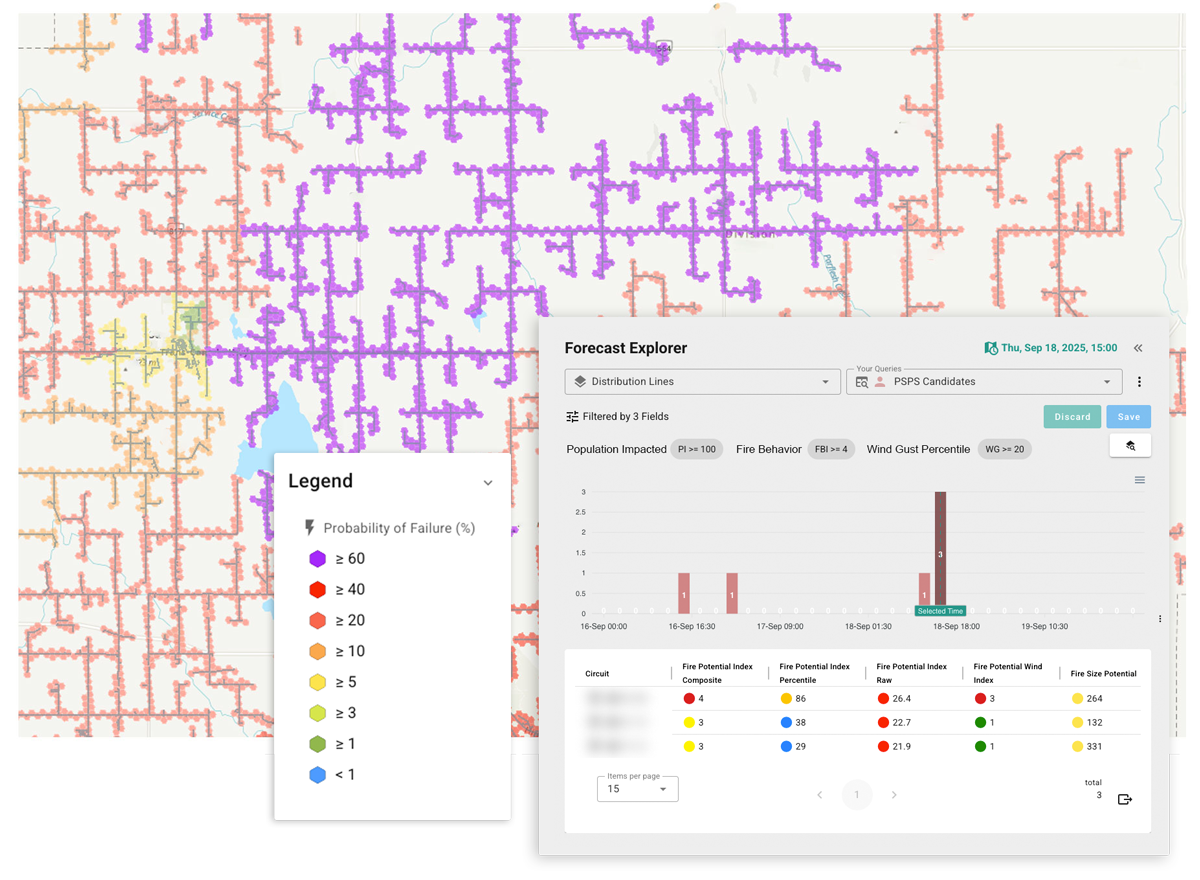

THE PSPS CHALLENGE
Bad PSPS loses trust.
Wildfire and extreme weather mitigation relies on real-time and proactive decision-making. Incomplete and untimely data can create additional issues:
- Sweeping shutoffs impacting too many customers
- Regulatory penalties for execution issues
- Lack of documentation to justify decisions and outcomes
- Extended outages causing disruption and economic impact
- Loss of customer trust when alerts are issued without clarity
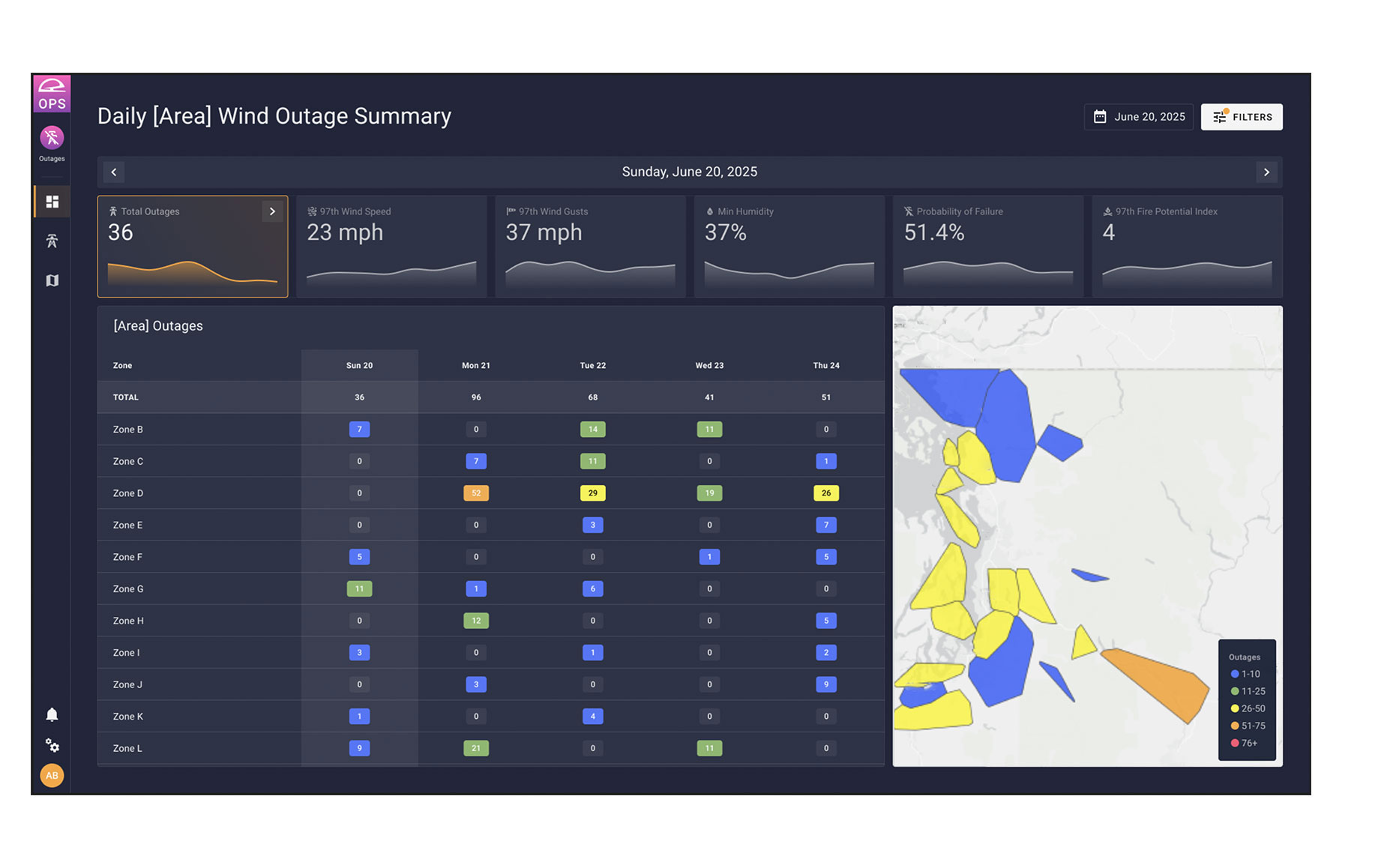
THE PSPS CHALLENGE
Million-dollar decisions under regulatory scrutiny.
Utility commissions nationwide are now expecting quantifiable risk analysis to justify every PSPS decision, with electric utilities facing significant financial penalties for execution issues and additional scrutiny over customer outage minute impacts. Regulators expect documentation that can withstand rigorous review and defensible decision-making processes.
Traditional risk assessment tools weren’t designed for this level of scrutiny or the real-time, surgical decision-making that modern electric utility operations require. Technosylva’s solution has been used by utilities to reduce the number of customers impacted by PSPS shutoffs by up to 90%.
PLAN YOUR STRATEGIES
Putting Strategy into Action
Enhanced powerline safety settings (EPSS):
Use Technosylva to calibrate and adjust your automated safety settings, allowing for de-energization of power lines when faults are detected through sensors, reclosers, and fast-trip technologies.
Public safety power shutoff (PSPS):
Use Technosylva to support PSPS decisions, with precise, accurate and timely fire, weather and asset risk and consequence data.
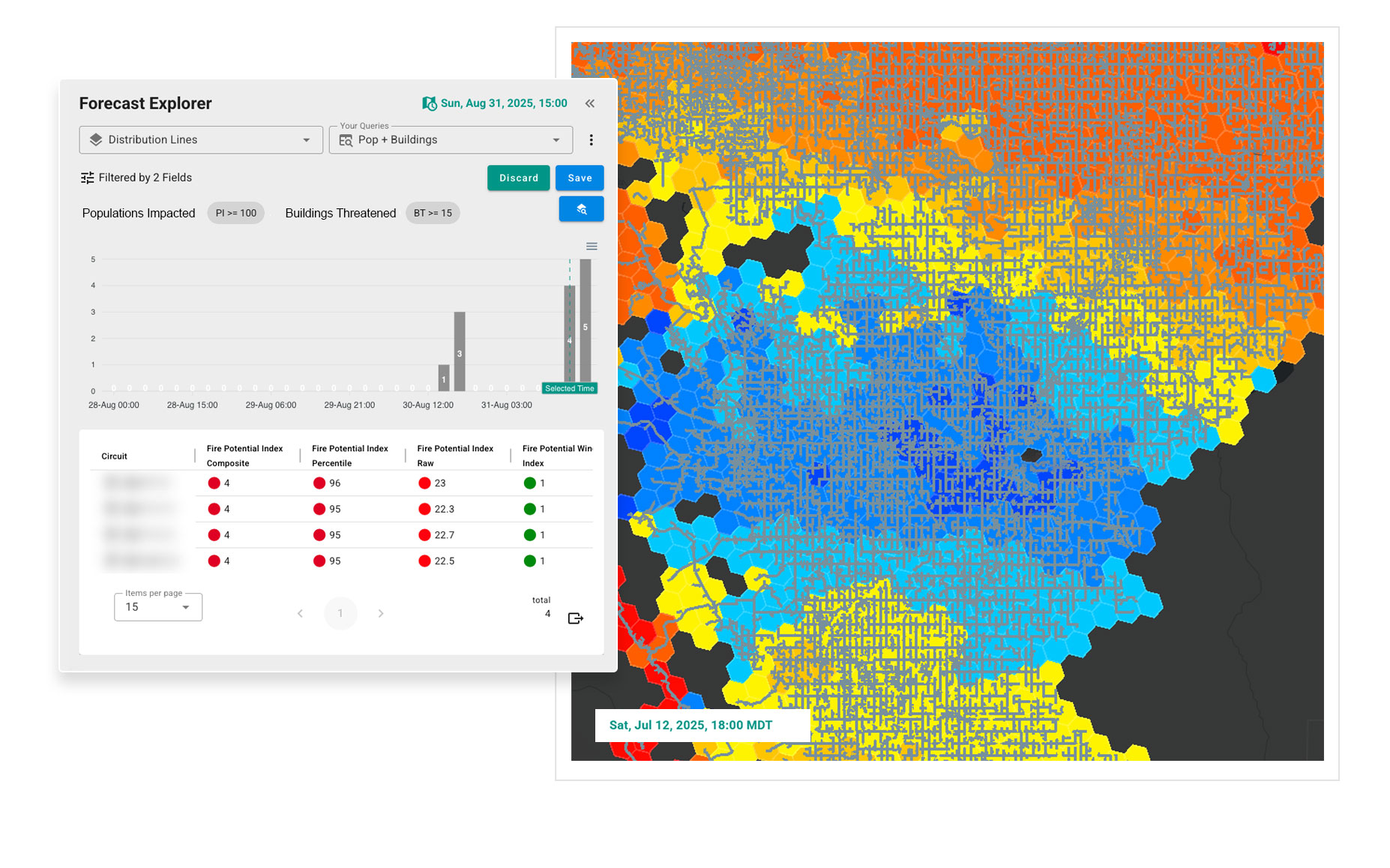
Confident decisions at every stage.
Fire potential, wind, fuel conditions, outage vulnerability, historical context, consequences. These are just a few of the continuous data feeds responsible decision makers need to make the tough calls on PSPS and to communicate both internally and externally.
Technosylva provides all this critical intelligence, validated, 5 days ahead, at the hourly and asset level, to make confident decisions at every stage leading to an event.
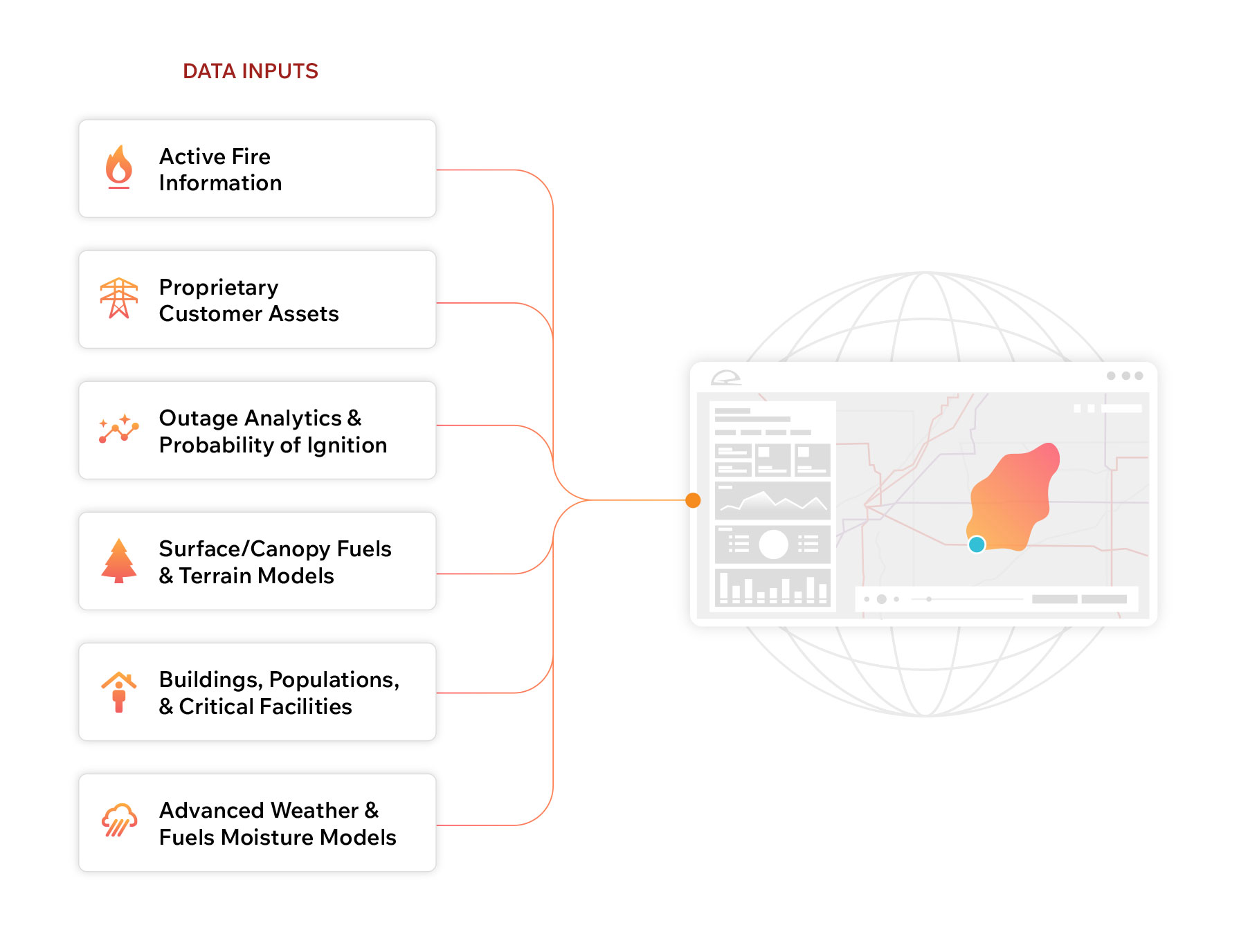
Justify every move with data.
Traditional risk assessment tools weren’t designed for real-time decision-making. Technosylva’s PSPS and EPSS solutions transform wildfire risk management from reactive emergency responses to surgical, data-driven actions.
- Real-time wildfire and weather risk forecasting (up to 5 days out)
- Contextual impact modeling (population, buildings, and infrastructure)
- 8-hour fire spread simulation methodology
- Risk-benefit analysis for PSPS decisions
- EPSS optimization for safety, reliability, and efficiency
- Regulatory compliance documentation and reporting
- Measurable ROI through reduced outage durations, unnecessary shutoffs, faster re-energization, and greater grid resilience
- Comprehensive wildfire and extreme weather risk forecasting capabilities
The modern tools electric utilities need.
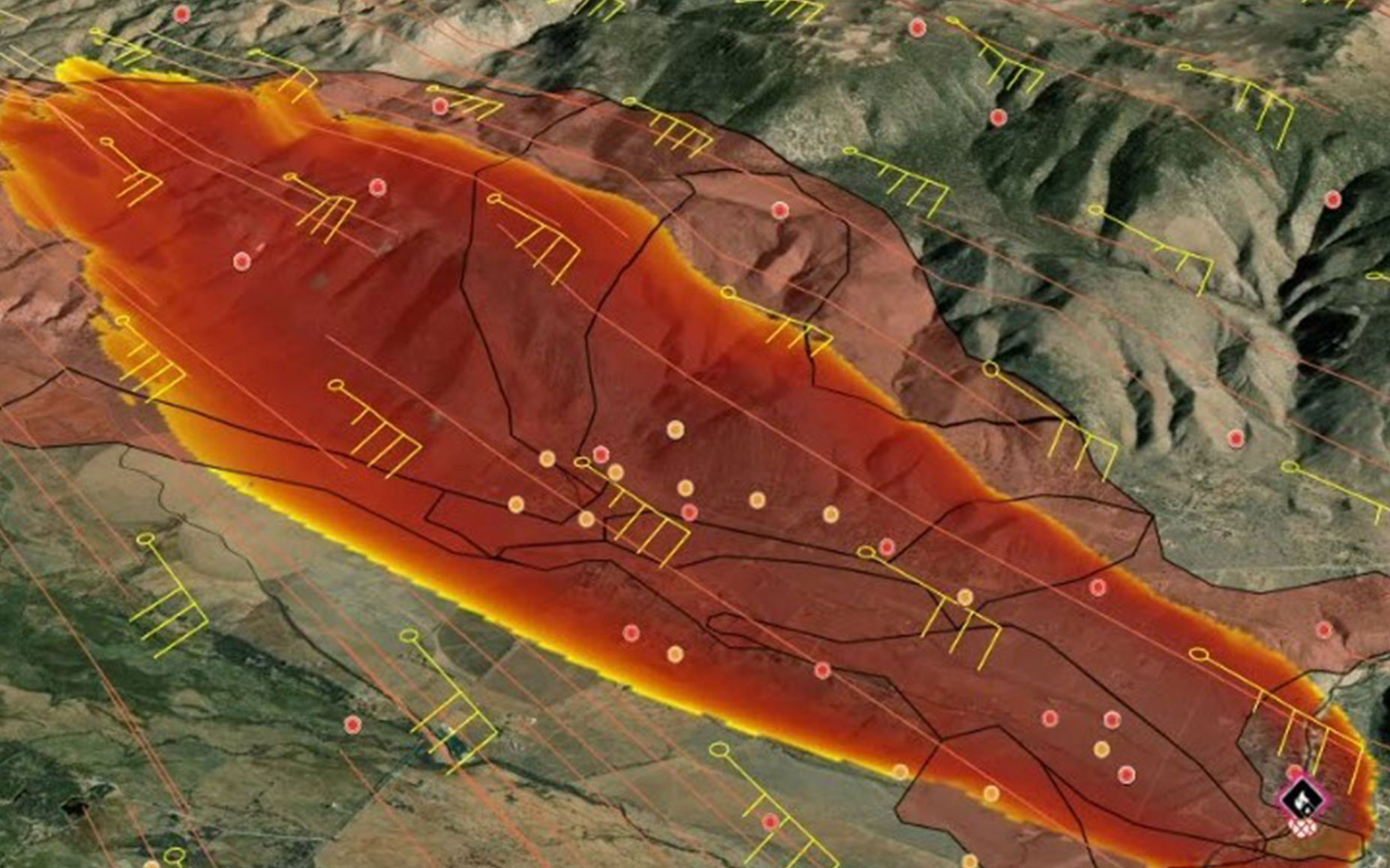
Advanced Modeling
Predict fire behavior, days in advance.
- Forecasts up to 5 days in advance of an event, updated hourly
- Risk based on fire conditions at the asset level
- 8-hour fire spread simulations provide granularity for confident, localized decision-making
- Real-time weather integration
- Machine learning-enhanced accuracy
- 100+ million daily fire simulations
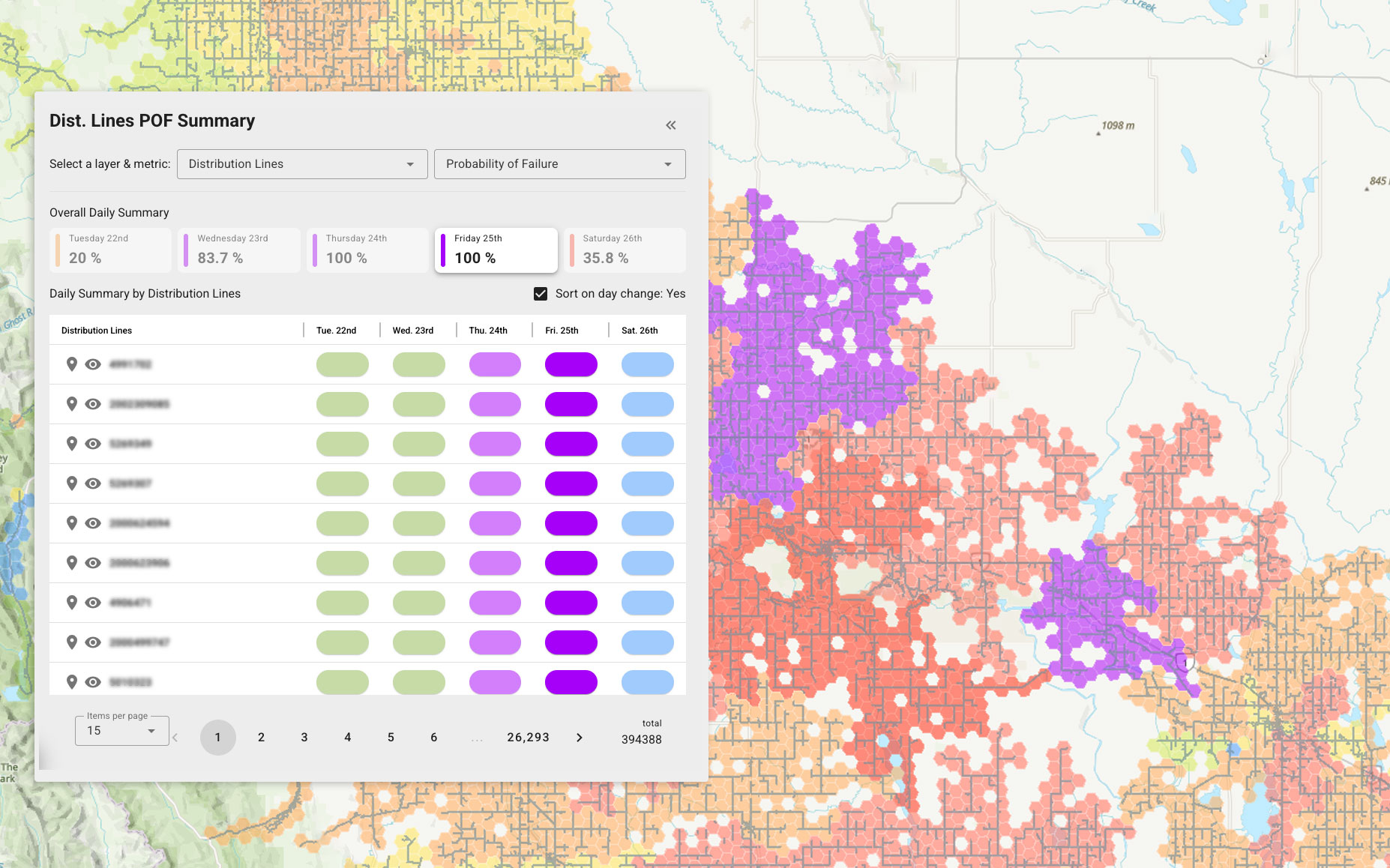
EPSS Readiness
Prevent wildfire ignitions.
- Powerline safety settings optimization
- Ignition risk reduction analysis
- Asset-specific risk profiling
- Performance monitoring and validation
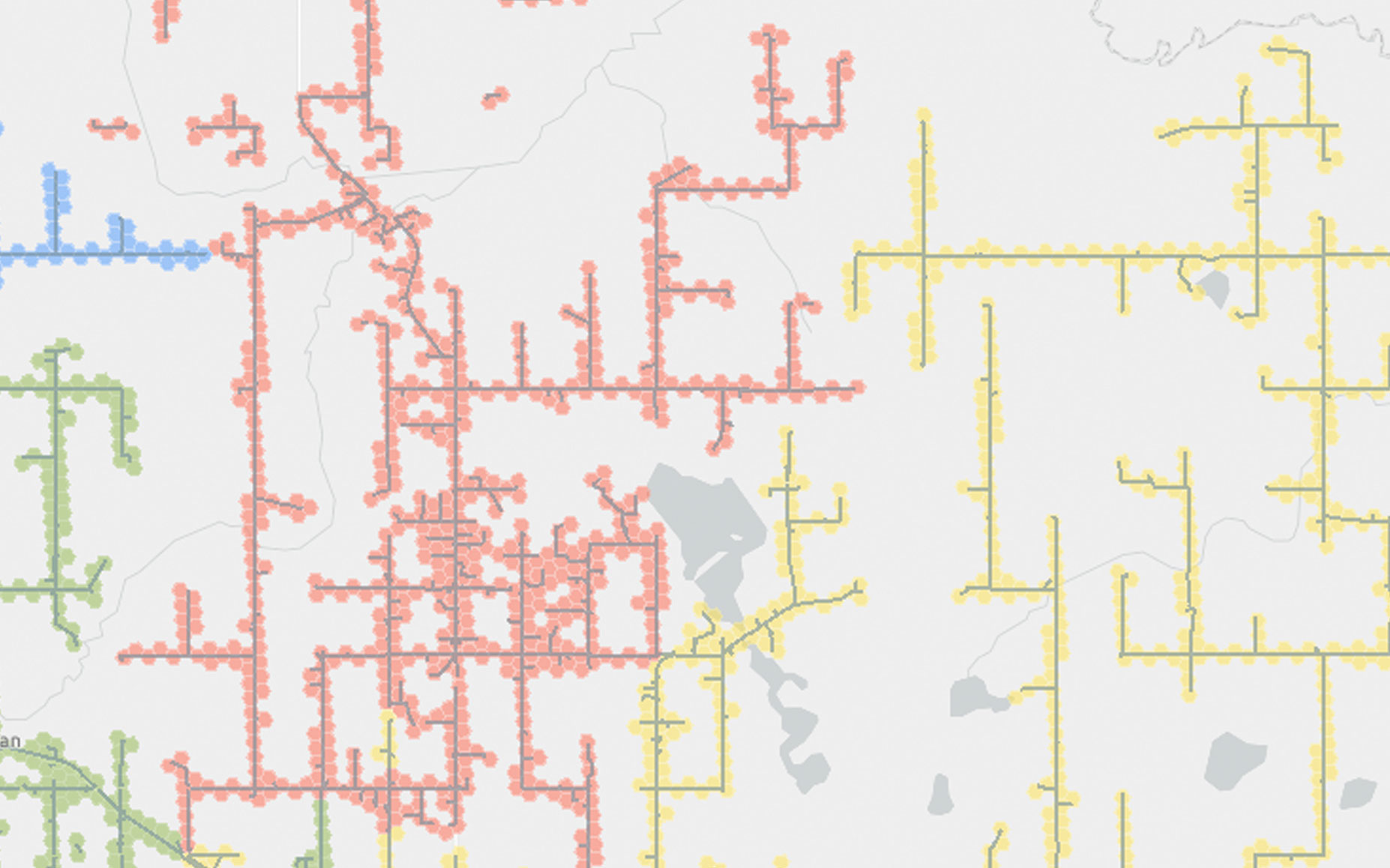
PSPS Decision Support
Know exactly where to power down.
- Real-time weather from station data with short-term forecasts
- Circuit-by-circuit risk assessment with segment-level visibility, enabling more targeted PSPS decisions down to portions of a circuit
- At-risk/vulnerable populations and infrastructure impact analysis
- Financial risk-benefit quantification tools
- Automated regulatory reporting

Trusted by utilities across North America.
- Proven track record with major investor-owned utilities
- Battle-tested with 30+ billion in-event simulations since 2017, and validated for use by fire agencies like CAL FIRE
- Regulatory acceptance and independent validation from multiple state commissions
- Recognized by utility credit agencies and insurance companies as a trusted component of legitimate wildfire mitigation plans
- Comprehensive WMP development support to create the most accurate, effective plan possible


